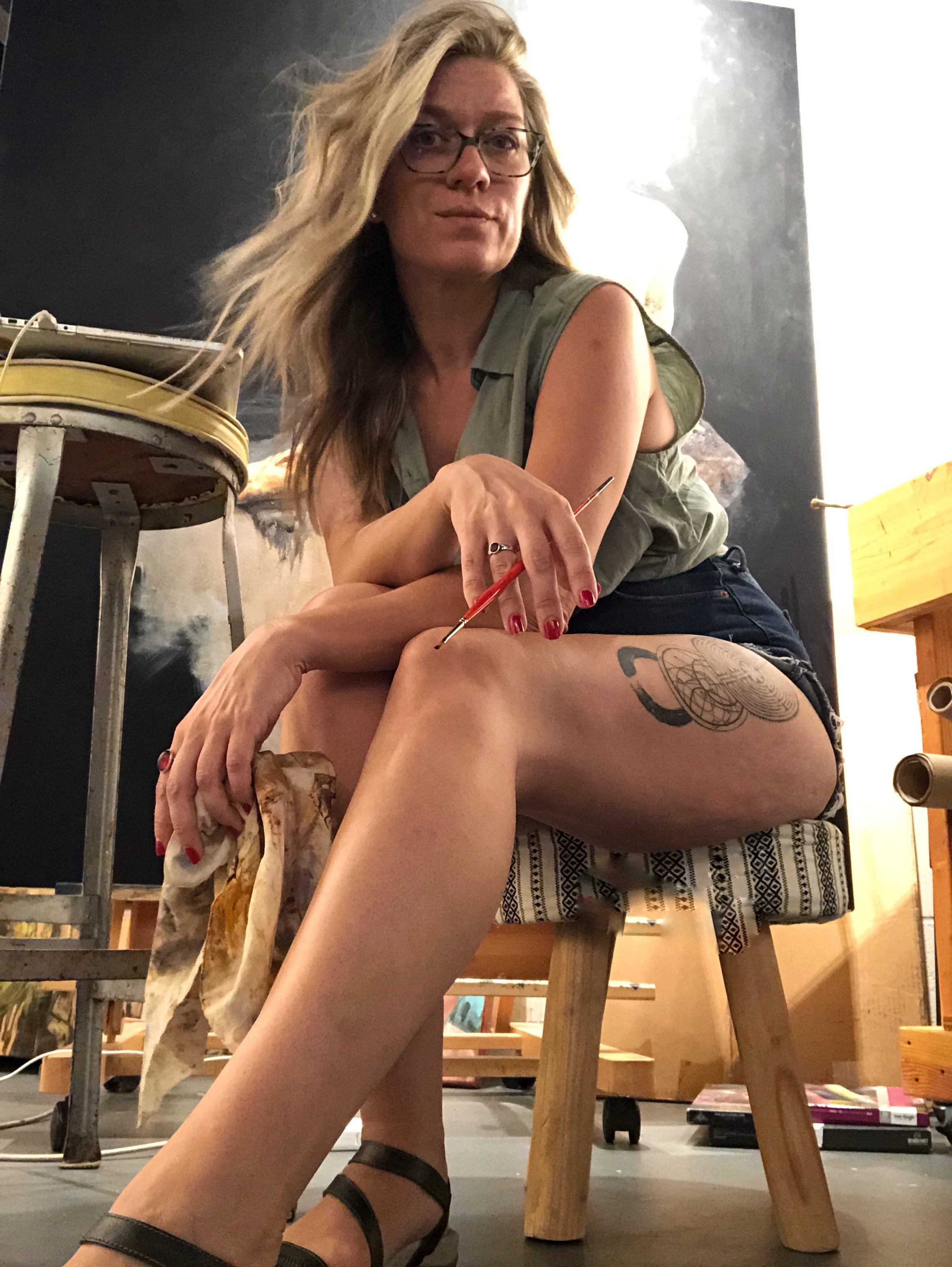Artist Bio
Shannon Soldner, a Colorado native born in 1976, earned her BFA with honors in Studio Art from the University of Missouri–Columbia in 2015. She lives and works in Rocheport, Missouri, where she paints at The Wandering Muse Studio. Her oil paintings investigate memory, perception, and the ever-changing nature of shared experience.
Artist Statement
Working in oil, I move between carefully rendered passages and areas that remain sketch-like or incomplete. This approach echoes how certain moments stay sharp while others blur or fall away. Leaving something unfinished is not about absence but about making space for uncertainty. The paintings mirror memory itself: fragmented, layered, and open to revision.
Color functions as both structural and conceptual element in my work. Layered muted tones combine with dreamlike shifting brushwork. I use negative space deliberately, creating surfaces that oscillate between restraint and playfulness. Just as perception is shaped by our feelings and experiences, my paintings emerge from the tension between clarity and distortion.
Although rooted in the figure, my work resists a singular narrative. This ambiguity proves essential because it creates space for interpretation and invites viewers to interrogate their own perceptual frameworks. I want people to examine not only what they see, but how they see it. The paintings encourage viewers to question their own experiences and challenge preconceived notions about the world and our place within it. Humor often enters this process, softening the weight of reflection and grounding the work in humanity. What emerges is not narrative but a shared point of entry where viewers can project their own recollections and associations.
My practice operates simultaneously as a private refuge and public discourse. It is a space where I spend extended hours engaged in painting's slow work, attentive to its silences and surprises. It is also where I consider art's larger cultural function: to create moments of connection and understanding, however fleeting or incomplete.
Art cannot fully capture experience, but it can create openings for inquiry. These moments allow recognition and questioning to bring people into dialogue with both the work and themselves. The paintings become mirrors that reflect not just images, but ways of seeing and being. Through this balance of the deliberate and unresolved, painting becomes a site where memory, perception, and meaning remain fluid. Here, viewers might discover something unexpected about their relationship to certainty, to memory, and to the stories they construct about identity.

